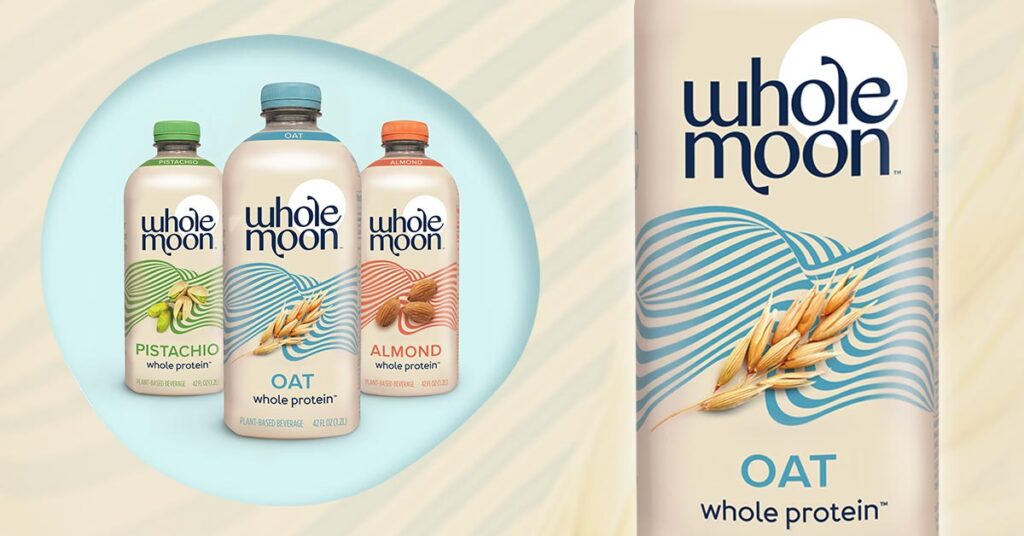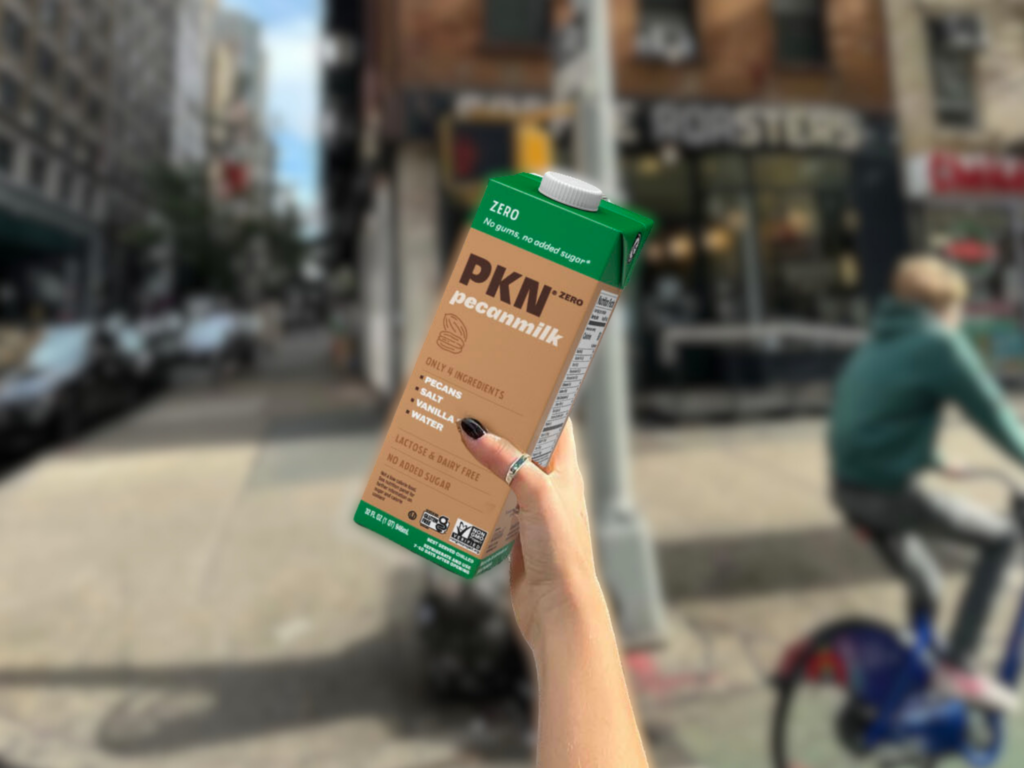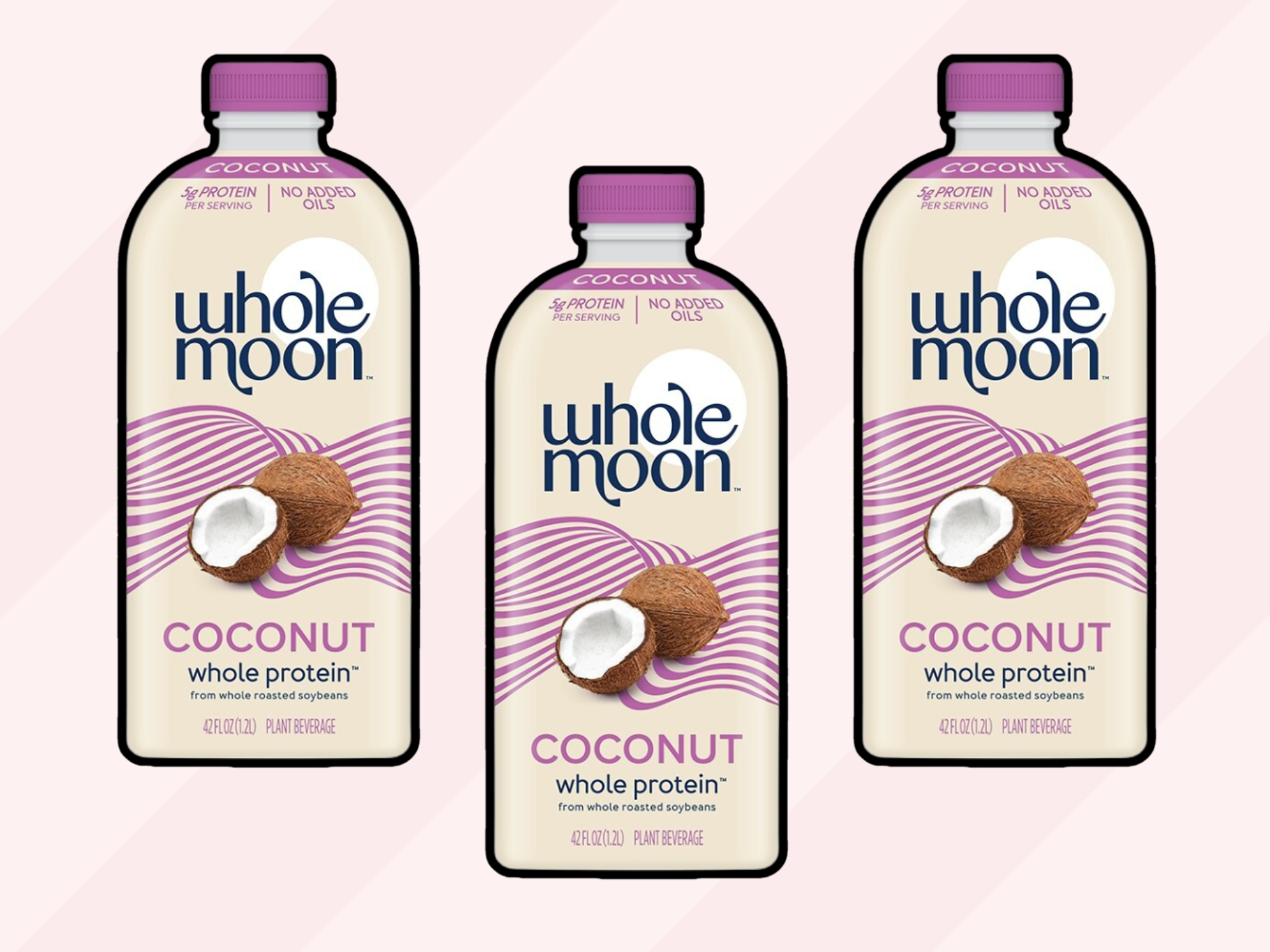4 Mins Read
An upstart brand on the alt-dairy block, New Moon has introduced what it says is the plant-based category’s first milk made from whole coconut meat.
Positioning it as a category-first, New York-based brand Whole Moon has unveiled a clean-label coconut milk product that uses whole coconut meat.
The consumer brand of WhiteMug, New Moon only entered the market in October and is banking on Americans’ thirst for more ‘natural’ food products short on ingredients and high on functional benefits.
Whole Moon’s coconut milk joins its existing range of oat, almond and pistachio milks, all of which contain its proprietary Whole Protein formulation derived from soybeans. This ensures the products are a complete protein source, with all nine essential amino acids present.
Playing into demand for clean-label options

Founded by Jonghoon Lim in 2023, Whole Moon is one of the newest plant-based milk players in the US market and says it wants to take on established brands with its nutritional focus.
While Americans drank 3% more whole milk last year, they cut back on plant-based alternatives by 6% – a third consecutive yearly decrease – according to Circana. And despite half (49%) of households buying non-dairy milk, a third of these consumers still haven’t found a product that meets all their needs.
Coconut milk has been an outlier among the wider decline in the plant-based milk category. In the 12 months to July 2024, dollar sales of almond and oat milk were down by 9% and 1% respectively while coconut milk experienced a 13% hike.
WhiteMug is hoping to build on this momentum with the Whole Moon coconut meat innovation, which it says gives the milk a smooth, subtly sweet flavour profile with a creamy, full-bodied texture, minus any oils or artificial flavours.
This will appeal to the growing demand for clean-label products – more than a quarter of Americans who buy plant-based milk want simpler ingredients, or at least ones they can understand. The main reason these consumers choose dairy over vegan alternatives is because they view the former as more ‘natural’ and nutritious.
“We’re thrilled to offer consumers the first coconut milk made from whole coconut meat – no creams, no oils, just pure, whole ingredients,” said Susan Knight, president and CEO of WhiteMug and Whole Moon. “This addition to our lineup stays true to our mission of delivering Whole Protein nutrition and a rich, satisfying taste in every sip. It’s exactly what consumers love and what we’re known for,” she added.
It’s not the only brand targeting this demographic – Texas-based PKN last week launched Zero Pecan Milk, a stripped-back product with zero additives.

‘Whole Protein’ process opens up a wide range of applications
The Whole Moon coconut milk has 5g of protein per cup, far higher than existing options on the market. Plus, by utilising whole ingredients, the company’s products focus on dietary fibre too (containing 2g per serving).
It’s a macronutrient that has become prominent in people’s nutrition goals – 95% of Americans don’t consume enough fibre, despite its benefits for the gut. Polling shows that protein and fibre are the two nutrients these consumers are most interested in, a box Whole Moon is ticking.
The Non-GMO Project Verified lineup is currently available at retailers like Fairway, Central Markets, QFC, Haggen, and Key Foods, and will be stocked at Sprouts Farmers Market from next month. The coconut-meat milk can be drunk on its own or blended into beverages and foods, and is priced at $5.79 for a 42oz bottle.
WhiteMug’s Whole Protein technology roasts soybeans whole to enhance the taste, eliminate the beany notes and add a hint of nuttiness. These are then precision-milled to lock the flavour in and retain the natural fat, without the need for additives. The firm doesn’t separate the okara (soy pulp) or fibre, saving food waste in the process.
While Whole Moon is WhiteMug’s way into the market, the resulting Whole Protein ingredient can be used for a variety of applications beyond milk alternatives, from baked goods, nutrition bars, and gluten-free products to protein powders, yoghurts, and plant-based meat.



